32 Insider Tips for Buying and Selling a House

Whether you’re buying or selling a home, dealing in real estate can be a nerve-wracking experience, especially for a novice or first-timer. Fortunately, getting the right information can help make the process more manageable. Find out how you can buy and sell a house like a pro.
See: The Best Place To Buy a Home in Every State
Read: Real Estate Investing Guru Mindy Jensen Says To Avoid These Types of Properties
Last updated: Sept. 15, 2021

Tips for Buying a Home
When buying a home, whether to live in or as an investment property, it’s crucial to understand financing options, how to apply for a mortgage and the various expenses involved.
It can be easy to get carried away when buying a home, so make sure the property is one that you will be able to afford, maintain and grow with over the years ahead.
Discover: The Cost To Own a 3-Bedroom Home in Every State
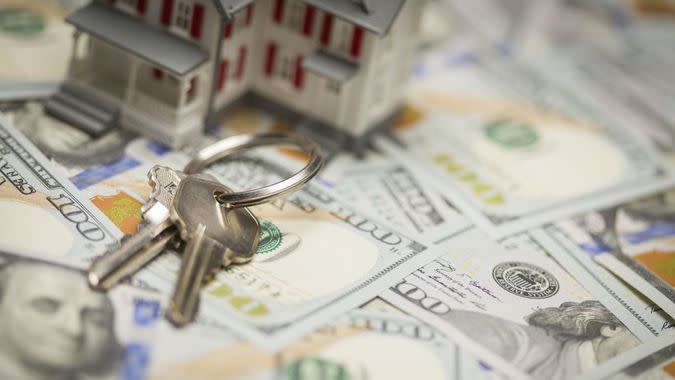
1. Save For a Down Payment
The typical down payment is 20% of the sale price of the home. You might be able to get away with putting down less than that, but then your mortgage lender can require you to purchase private mortgage insurance. The insurance protects the lender in case you default on the loan.
That's not a horrible thing, but it will increase your monthly payments by 0.5% to 1%. So it might make more sense to take some time and save more money for a down payment.
Read: Common Real Estate Myths That You Need To Know
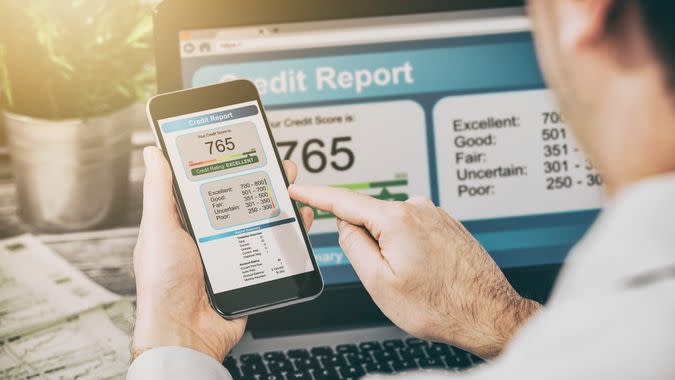
2. Check Your Credit
The better your credit score, the lower your mortgage interest rate will be. A score above 720 is ideal for purchasing a home.
Multiple factors are considered when calculating your score, such as if you pay your bills on time, the amount of your debt, length of credit history and types of credit; lenders prefer that you have a variety of credit sources. Check your credit quarterly and fix any mistakes that appear on your report.
Look: 25 Tricks To Sell Your House for a Bigger Profit

3. Avoid Making Any Other Big Purchases
Every time you apply for a new form of credit, such as a credit card, a hard inquiry is run on your account, which can cause your credit score to take a slight dip. Therefore, avoid applying for or opening any new credit forms until after you have purchased your home.

4. Remember Closing Costs
Purchasing a home requires some mortgage-related expenses that might not be obvious at first -- this includes closing costs.
Closing costs can include homeowners insurance, appraisals and home inspections, and cost about 2% to 5% of your mortgage. So, closing costs for a $300,000 mortgage, for example, can run anywhere from $6,000 to $15,000. Remember to plan for closing costs when calculating your budget.

5. Get a Buyer’s Agent
You might think you’re saving money on commission by going at it alone when purchasing a home, but an experienced real estate agent can help you in numerous ways.
Along with helping you to avoid costly mistakes, a real estate agent can do a lot of the house searching for you, help you negotiate a better price and ensure that contracts and paperwork are correctly filled out.

6. Determine How Much Home You Can Afford
A three-story, four-bedroom, three-and-a-half-bath modern home with an infinity pool might be your dream home, but your budget might only allow for something smaller and less extravagant.
Before compiling your wish list for your dream home, run the numbers and figure out how much home you can actually afford. This can save you tons of time when you’re out house-hunting and allow you to focus on only those properties that you can actually afford.
Learn: 40 Cities That Could Be Poised For a Housing Crisis
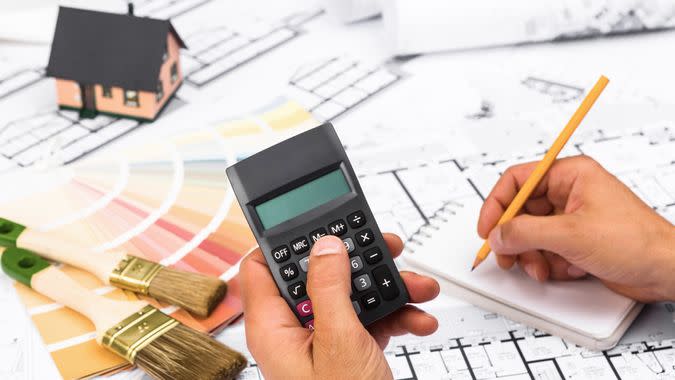
7. Include Added Expenses
You will likely run into additional expenses once you move into your new house, so prepare for these costs when calculating your initial budget. Decorating, for example, can cost more than you initially expect. Furniture, fixtures, lighting, paint, carpeting and the like can quickly add up.

8. Choose the Neighborhood Carefully
Location is everything, and for good reason. The neighborhood you buy in will shape your daily living experiences and should match your desired lifestyle. Factors to consider include the school system, crime rate, walkability, public parks, access to shopping, restaurants and other cultural amenities.

9. Determine Your Commute Time
The location of your home will greatly impact your commute time to work, for better or for worse. Before buying, consider your method of transportation -- whether it's by car, bus, train, etc. -- and the amount of time it will take you to reach your workplace.

10. Buy the Right Type of Property
Know what type of home you want before setting out on a search for properties. This can save you a lot of time when looking for the ideal place.
For example, a condo might be less expensive than a single-family home, but you will forgo a private yard, which can impact family and entertaining time. On the other hand, a condo requires a lot less maintenance than a large house. Weigh the pros and cons of each type of home, and choose one that will best fit your lifestyle and budget.

11. Choose Your Length of Mortgage
Evaluate both a 15-year and 30-year mortgage to determine which one will be most advantageous. The 30-year fixed mortgage is used for the majority of home loans. However, depending on your circumstance, you might benefit from paying your house off in half the amount of time.
The monthly costs will be higher for a 15-year loan, but the interest rates are usually lower than the longer loans. So, in the end, you will end up paying less overall.

12. Get Preapproved for a Mortgage
A mortgage preapproval tells sellers that you are able to get a loan from the bank and that you are a serious shopper. During the preapproval process, the lender evaluates your credit score and history, debt, income and employment history to determine if you qualify for a home loan and at what interest rate.
The lender will give you a letter documenting your preapproval status; the letter should be shown to sellers when an offer is being made.

13. Stay Within Your Budget
The amount you can afford to spend on a house and what the bank agrees to lend to you can often be two different numbers. Your mortgage lender might offer more money than you actually need. This can be dangerous because it means that your monthly payments will be larger than anticipated. Stay on the safe road, and stick to your original budget.
Budgeting Guide: How To Create a Budget You Can Live With
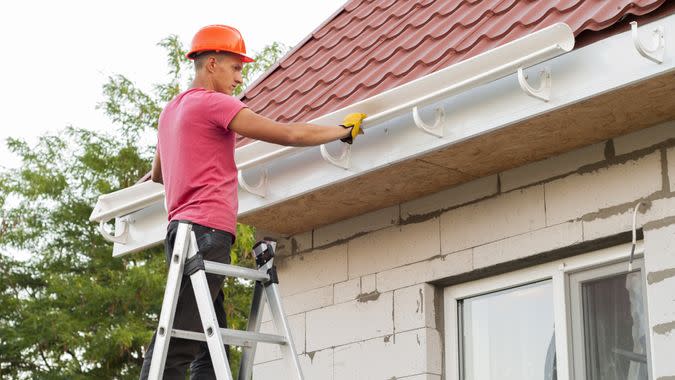
14. Consider Repairs and Renovations
Paying for repairs, maintenance and renovations can be a constant expense when buying a home. In fact, the average monthly cost to maintain a home is $1,204, according to a GOBankingRates study.
If you're moving from an apartment or condo, you might be surprised at the cost it takes to maintain the landscaping, keep the gutters clear and fix things up around the house. Budget accordingly to avoid being surprised by the monthly expenditure.

15. Don’t Forget Moving Costs
Depending on how much stuff you have and how far you are going, moving can cost around $1,000 to $5,000. Prepare for this in advance by not only budgeting the expense, but also by using your move as an excuse to clean out and get rid of old furniture and items you no longer need. By reducing the amount of stuff you have, you can cut your moving costs.

16. Get a Home Inspection
Don’t skimp on the home inspection. You might be so inundated with costs that by the time it comes around to having your new home inspected, you might think you can do without. Not true.
Along with the condition of things like the foundation and roof, a home inspection can reveal things you might not have known about otherwise, like mold or pests.
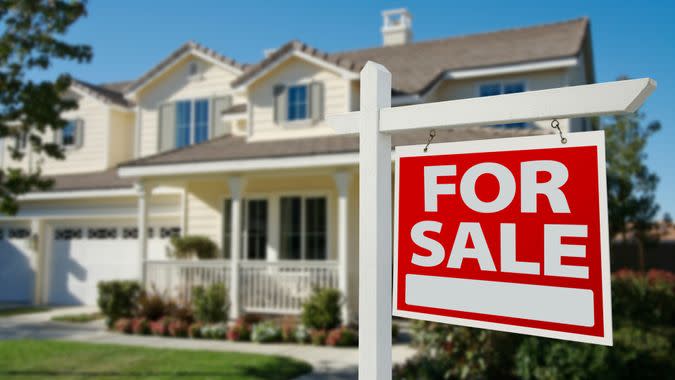
Tips for Selling a Home
Selling a home can be complicated, too. Knowing how to stage it just right, attract buyers and price it to market value can help bring in serious offers. Marketing and social media skills, and working with the right real estate agent, are also crucial to help you get the most money for your house.

17. Boost the Curb Appeal
Before even setting foot in the house, potential buyers see the exterior of your home and immediately start to form an opinion. Going the extra mile on curb appeal, such as maintaining the front yard, paving the driveway, investing in landscaping, cleaning the porch and painting the front door, can help sell your home.

18. Post a Video Tour
Pictures are nice, but to give prospective buyers a more realistic experience of your home, post a video tour online. Keep the video to just a few minutes in length, and focus on the outstanding features of your house, such as a newly renovated kitchen or bathroom. Sharing a personal experience or two that you had while living in the house can help you connect with the viewers.

19. Use a Real Estate Agent
Real estate agents get buyers in the door, which is exactly what you want when trying to sell your home. They are also experts at marketing, staging, negotiating, filling out contracts and making sure everything goes right during the selling process. The effort on your part is greatly reduced, and you will probably sell your house faster than if you went at it alone.

20. Tell Your Neighbors
Getting the word out is essential when selling your house -- and who better to decide who moves into the neighborhood than the neighbors. Post the listing on the neighborhood Facebook page, or send a quick note and a few pictures to your community email list. You or your real estate agent can also host an open-house block party to give everyone a chance to see the house in person.
Don't Make These Mistakes: Craziest Things That Kill Your Home’s Value
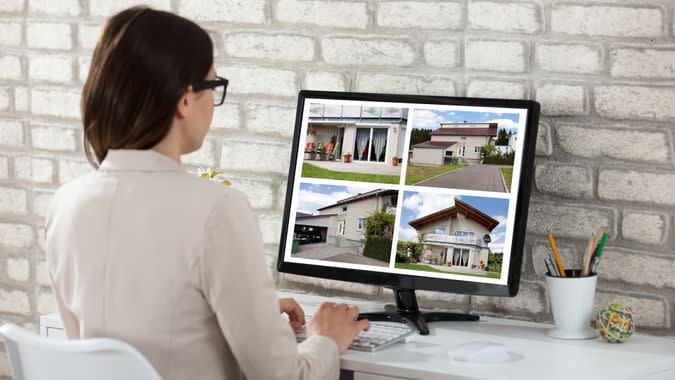
21. Have a Social Media Presence
Create a Facebook page and Instagram account for the house and post information, photos, videos and your real estate agent’s contact information. Write posts linking back to the pages once a day on your personal Facebook, Instagram and Twitter accounts to reach friends, family and colleagues who might be looking to purchase a home.

22. Advertise on Social Media
If you’re really in a hurry to sell your house, buy advertisements for the house on social media, such as Facebook and Twitter. You can set the demographics for the ads, so you’ll advertise to a wider audience than just your family and friends and reach serious buyers.
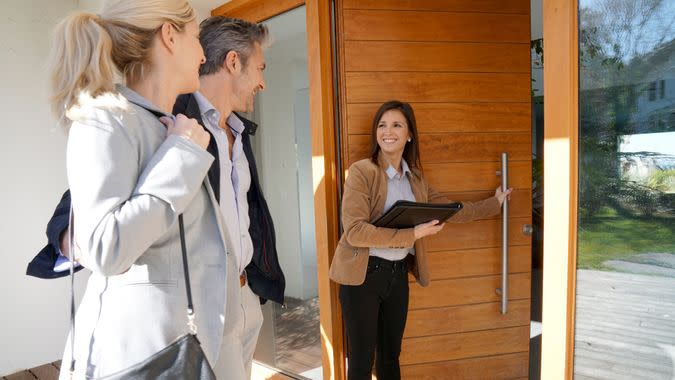
23. Show the Home
The house must get shown in order to be sold. Make it easy for real estate agents to bring potential buyers around and give them a tour of the home. If you're still living in the house and don’t want your privacy interrupted, decide on certain times of the day or week when the agent is free to bring people around.
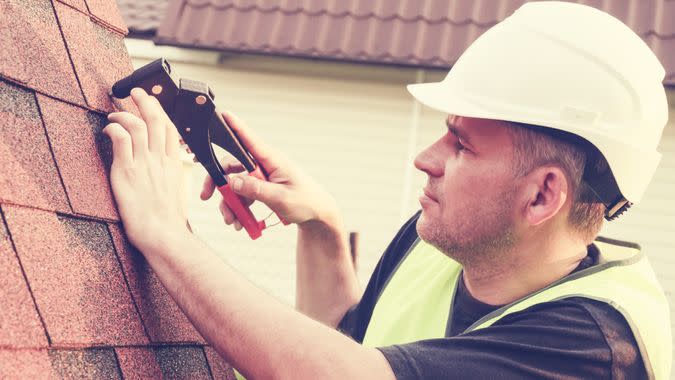
24. Make Repairs
That one burner on the stove that won’t light, the basement door that doesn’t close properly or the shingle hanging off of the roof -- these can all be turnoffs to potential buyers. Take the time to fix all of the small, and not so small, broken things around the house.

25. Price Realistically
It’s easy to get a little too ambitious in a seller’s market, but over-pricing your home can work against you. Most buyers will have done their research and know what the typical house sells for in your neighborhood.
Stay competitive by finding out what your house is really worth and pricing it accordingly to the other houses that have recently sold in your area.

26. Know the Competition
It can be wise to attend some open houses in your neighborhood so you have an idea of what you are up against. Along with pricing, you can check out the condition of the homes and see where you are falling short.
For example, if a neighbor upgraded their kitchen appliances and your stove is from the last century, you might want to follow suit and add some modern amenities.

27. De-Personalize
Prospective buyers need to imagine themselves living in your house. This can be difficult to do if your walls are filled with family photos and personal memorabilia. Remove everything that marks the house as your territory.

28. Declutter
Clean rooms that are free from clutter, books and keepsakes are what buyers want to see. Leave tabletops, countertops and the like empty, except for maybe a vase of fresh flowers here and there. If you are still living in the house, pack your personal belongings up and put them in storage.
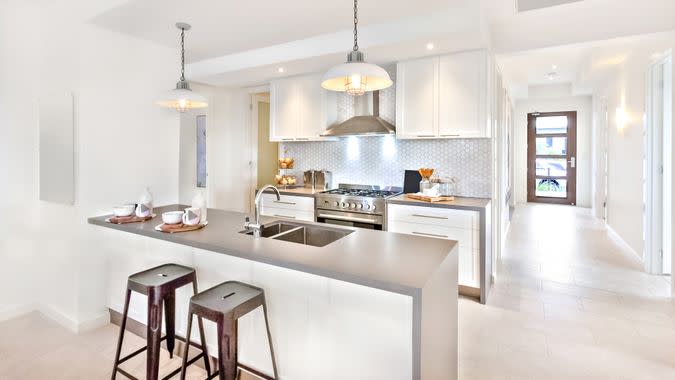
29. Think About Lighting
A home with dark, dingy rooms might be a tough sell. Instead, show your house in the best light possible -- literally. Make sure all of the interior and exterior lights are working. And use high-wattage bulbs to give the home a light and airy feel.

30. Update the Bathroom
While you don’t want to spend a fortune on a bathroom renovation, making some important upgrades can help increase the value of your property. Start with the plumbing essentials, and make sure there are no water leaks and everything is in proper working order. Next, go for the aesthetics -- a fresh coat of paint, modern fixtures and possibly a spa shower, for example.
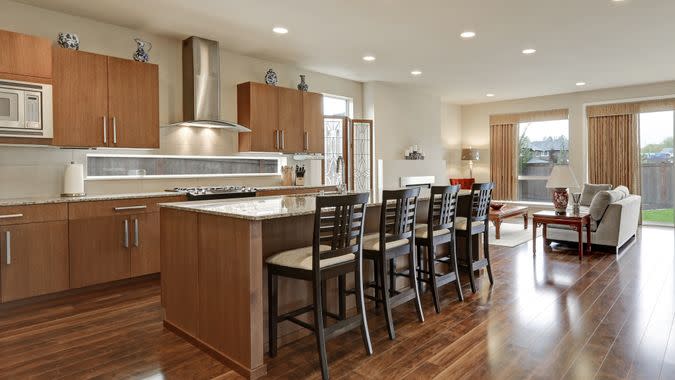
31. Update the Kitchen
The logic applied to the bathrooms can also be applied to the kitchen. First, focus on the plumbing and make sure the drains, garbage disposal and dishwasher are working properly. After that, consider a style and aesthetic makeover, such as repainting, new tiles on the floor, an energy-efficient refrigerator and possibly a convection oven.

32. Add a Finished Deck or Porch
Barbecues, family dinners and entertaining friends are all fun ways to enjoy a deck in the spring and summer. A deck or expanded porch can also add value to your house and be a key selling point.
If a deck already exists, consider having the wood refinished before listing the property so that it shines like new. If there is no deck, consult with a contractor to discuss the best and most cost-efficient way to add one to the house.
More From GOBankingRates
What Money Topics Do You Want Covered: Ask the Financially Savvy Female
Nominate Your Favorite Small Business To Be Featured on GOBankingRates
This article originally appeared on GOBankingRates.com: 32 Insider Tips for Buying and Selling a House
